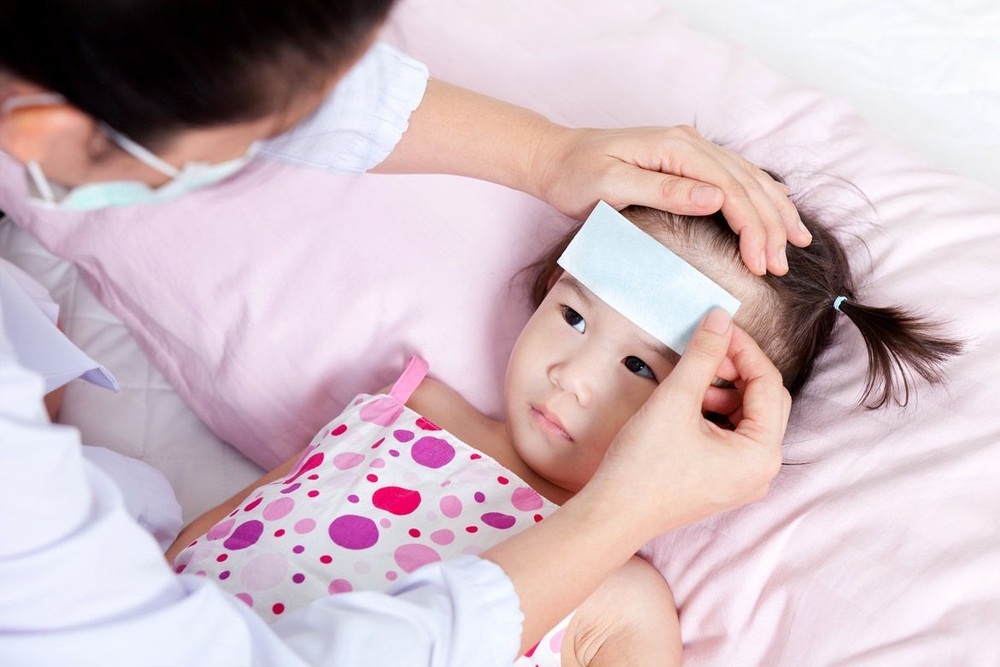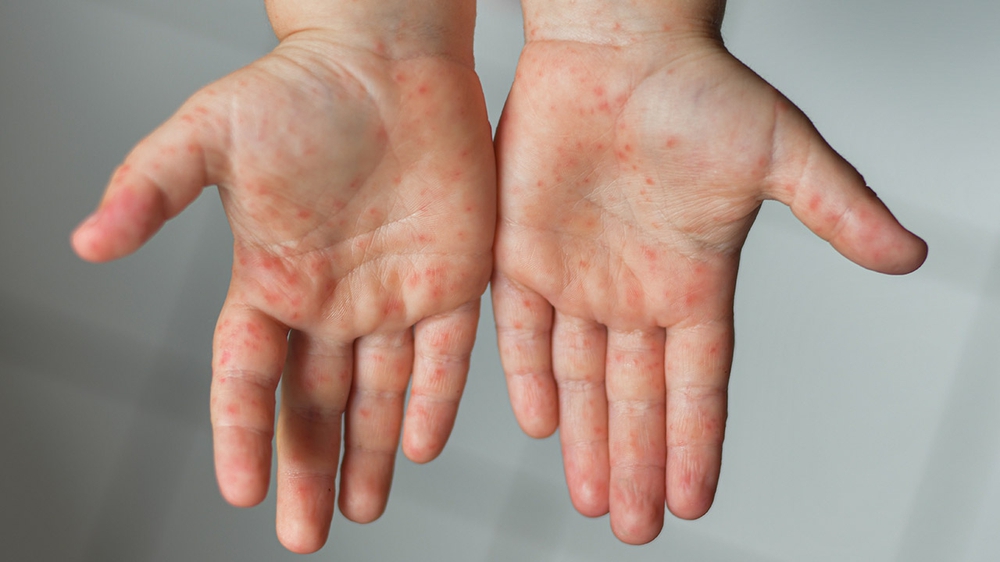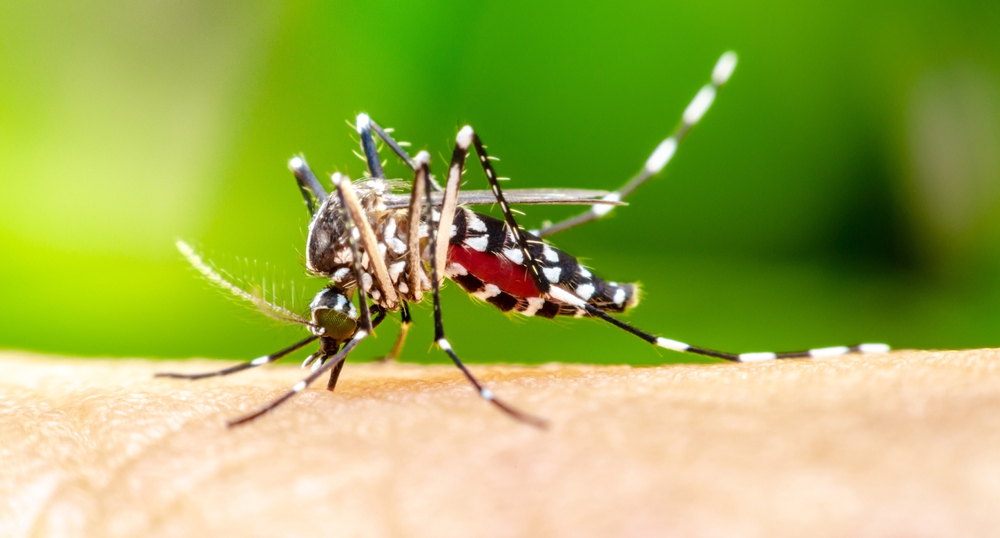Red warning signs need hospitalization and extreme misconceptions
Summer is not only the season of sunshine and heat, but also the season of many infectious diseases, especially in children.
This summer has also started with outbreaks of hand, foot and mouth disease, dengue fever… in many localities across the country, in which cases of severe complications and even death in children have been recorded. em. However, these diseases are completely preventable.
Program It’s hard to have a doctor Today we will discuss the topic “Summer infectious diseases on the rise: What to do to prevent?”.
The program has the consultation of TS.BS. Do Thien Hai, Deputy Director of Center for Tropical Diseases, National Children’s Hospital.
We invite you to watch the program in the video below.
Some of the content of the program:
1. Situation of summer infectious diseases
Q: Why is summer the season for infectious diseases?
Answer: Vietnam is a tropical country with hot, humid and rainy weather conditions. Infectious diseases increase and decrease with the seasons, and temperatures will be favorable conditions for viruses, bacteria or disease vectors to develop.
Current weather, when there are many showers, are favorable conditions for mosquitoes – the vectors of dengue fever, Japanese encephalitis – to develop. In addition, this is also a condition for the virus that causes hand, foot and mouth disease – a disease often spread in preschool children – to thrive.
Q: What infectious diseases are common in recent times at the National Children’s Hospital?
Answer: In the past 10 years, at the time of season change from spring to summer, the four diseases that experts are always wary of are dengue fever (DHF), Japanese encephalitis, hand, foot and mouth disease (TCM) and influenza. These are very contagious diseases and can cause epidemics on a fairly large scale.
Currently, the number of TCM cases is increasing quite high. Every day, the Center for Tropical Diseases, National Children’s Hospital, receives from 15-30 cases of TCM. One thing to note is that this number of hospitalized patients only accounts for 20% of the total number of patients who come to the hospital for examination and diagnosis. Some cases were also diagnosed with the disease but were assigned to go home for monitoring or transferred to provincial levels for treatment.
Q: Many reports have shown that compared to the same period in previous years, this year, a number of infectious diseases increased significantly. Why does this happen?
Answer: Through epidemiological statistics, we find that every 4-5 years, the number of dengue cases increases. 2017 recorded a very high number of dengue cases and this year also falls into this cycle. Therefore, we are also very concerned about this year’s dengue epidemic.
Q: How dangerous can dengue fever (DHF) be? What are the red warning signs for this disease?
Answer: If it is mild, the patient can completely treat it at home. However, it is important for us to recognize the warning signs of serious illness to bring the patient to the hospital, especially in cases of dengue when the body has a certain medical condition or other medical conditions. people who are taking corticosteroids.
Dengue is a condition that causes clotting disorders and circulatory failure. Therefore, when diagnosed with dengue, if the patient has pre-existing medical conditions, especially those related to coagulation disorders or is taking drugs that affect blood clotting, hospitalization is required. monitoring and treatment.

Care for children with dengue should pay special attention to the signs from the 3rd to the 7th day, even when the body temperature drops. Illustrated photo.
Those who get sick, if they respond to fever-reducing drugs, while still playing and living normally, can stay at home for monitoring and treatment. However, if the patient has any other abnormal signs, they definitely need to go to the hospital for examination.
Especially, on the 3rd to 7th day of dengue fever, if the patient feels tired or does not eat or play even though the body temperature has dropped (especially in young children), these are very early signs. indicates the need for hospitalization.
The characteristic of dengue fever is that it can cause blood clotting disorders. However, some people when caring for children with dengue often try to bring down the child’s fever by using both paracetamol and ibuprofen at the same time.
However, when we have dengue, we are only allowed to use antipyretic drugs containing paracetamol. Because dengue can actually cause liver damage. Using paracetamol not prescribed can also cause hepatitis, plus the use of ibuprofen, the risk is very high, it will cause massive bleeding. This is a very different point in the care of dengue patients and patients with common viral fever.
Therefore, we need to try to diagnose dengue early because the disease has other care.
Staying hydrated when you have dengue is extremely important to prevent the disease from getting worse. However, one mistake when treating dengue is that the patient relies on fluids. In young children, rehydration is more difficult because they are fussy and often do not drink on their own. If parents do not pay attention to rehydrate their child, the risk of severe transfer will be very high.
Q: Distinguish the symptoms of hand, foot and mouth disease (TCM) and monkeypox
Answer: In fact, monkeypox is characterized by the appearance of blisters on the skin. TCM can also have this sign. However, so far, Vietnam has not recorded monkeypox cases.
In addition, the specific signs of rash in HFMD are the rash in special locations such as nasopharynx, palms/feet, knees, buttocks; The rash may be red macules or blisters. As for monkeypox, blisters can appear all over the body.

The specific signs of rash in HFMD are the rash on special locations such as the palate, palms/feet, knees, buttocks. Illustrated photo.
Question: When my child has TCM, is it necessary to be hospitalized for treatment? Which sign of TCM is considered a danger sign?
Answer: During the 2011-2012 epidemic season, we counted more than 3,000 patients with TCM who visited the hospital. However, the number of hospitalizations is only ⅕ – ⅓ of the cases of TCM.
We need to pay attention to the warning signs to be hospitalized, not wait for the danger signs to appear. For dengue and HFMD, when dangerous signs appear, it will be very difficult to handle.
For common viruses or dengue, if the child is still eating, playing and reducing fever, we can monitor and treat the child’s illness at home.
However, if you see that your baby is crying, tired, especially persistent, you need to take the baby to the hospital for treatment immediately. There is a mistake that many mothers make is thinking that their crying baby is caused by mouth pain, because there are ulcers in the mouth. However, prolonged fussiness is a sign of a child’s neurotoxicity.
In TCM, the disease progresses very quickly. Every 6-12 hours, the child may have a more severe illness. Therefore, it is important for parents to recognize signs of illness for timely treatment.
Q: Japanese encephalitis is a disease that is also in season, how to detect?
Answer: Japanese encephalitis mainly occurs in older children. Currently, the expanded vaccination program with Japanese encephalitis vaccine is working very well. However, a mistake that parents often make is to only keep track of their child’s immunization records for the first 2 years, and then neglect the following years.
The early signs when a child has Japanese encephalitis is a headache, the pain gradually increases. The earliest manifestation of consciousness disorder is excessive sleep. Later manifestations are nausea and vomiting. Therefore, when seeing their children have these signs, especially in children aged 3 years and over, parents need to be especially vigilant about Japanese encephalitis.

Mosquitoes are the vectors of Japanese encephalitis. Illustrated photo.
2. Summer infectious disease prevention
Q: How to prevent summer infectious diseases?
Answer: A healthy body is the first thing to prevent not only infectious diseases but also other diseases.
Parents need to feed their children with adequate nutrients, ensure a scientific diet for their physical development and increase resistance. Parents should consult information about nutrition for their children through the websites of official agencies such as the National Institute of Nutrition or the National Children’s Hospital.
In addition, this is the summer vacation time, the time when mosquitoes breed and develop. Therefore, parents need to clean up places where mosquitoes live, such as standing water. Keeping the environment clean is the most important thing to prevent dengue.
For TCM, the best way is to wash your child’s hands often. When a class has a child with TCM, parents need to notify the school to clean and disinfect the classroom.
Another problem is that adults can carry infectious viruses that can be transmitted to children but adults do not get sick. Therefore, parents should limit contact with children with infectious diseases, such as visiting sick children, partly to avoid transmitting other diseases to that child, and partly to avoid the transmission of diseases by children. The child you are visiting is out of the community.
With Japanese encephalitis, parents should have the habit of checking their child’s immunization record at a certain time of the year to promptly supplement their child with the necessary injections. The number of cases of Japanese encephalitis is not much, but the rate of sequelae is very high, especially mental sequelae.
Question: When children live in an environment where someone is sick, what should parents do to minimize the risk of spreading the disease to their children?
Answer: For diseases such as flu, COVID, children should be isolated from sick people. For HFMD, it is also necessary to completely isolate sick children from uninfected children, and regularly wash their hands.
For dengue, the living environment should be cleaned up, especially avoiding mosquito bites.
Q: Many parents think that just staying at home will not be at risk of hand, foot and mouth disease, so they only let their children play indoors. Is this right?
Answer: Keeping your baby at home is not a good way to keep your baby healthy. Babies still need activities, but make sure to prevent infection such as avoiding mosquito bites, washing hands after playing with other children.
Exercise helps to keep the body healthy, mentally happy, comfortable and improve physical condition.

Exercise helps children’s health better. Illustrated photo.
Question: There are many oral opinions that abstain from wind and water for people with infectious diseases, including hand, foot and mouth disease. Is this right?
Answer: This is the traditional view that needs to be changed. We once received a newborn baby with TCM who had not been bathed for 1 month.
In fact, if a child catches a cold while having an infectious disease, the risk of respiratory failure and digestive disorders is very high.
However, abstaining from bathing your baby can cause complications such as skin infections or more itching and discomfort. Therefore, parents can still bathe their children, but remember to bathe in a well-ventilated room, take a quick bath by partial bathing, and keep the child warm after bathing.
at Blogtuan.info – Source: Kenh14.Vn – Read the original article here



